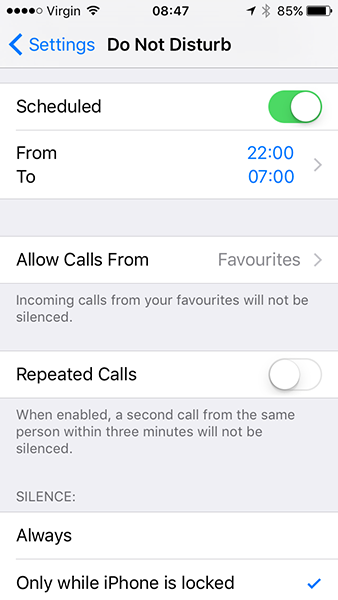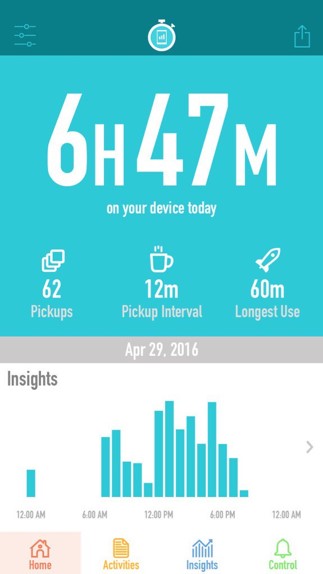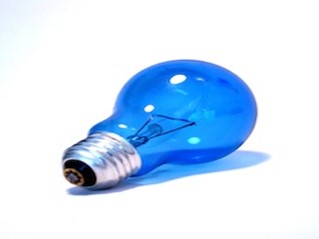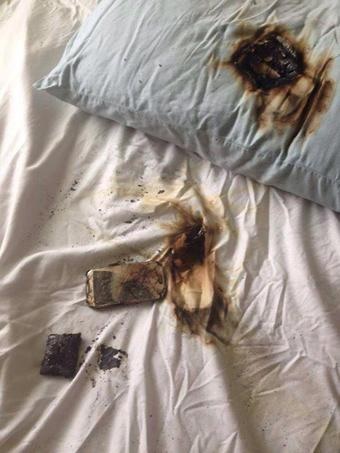Many teenagers and even some preteens have got into the habit of taking their phone or tablet to bed with them and the consequences can be really problematic.
In a survey published this month of 2,750 pupils in the UK aged 11-18, they found that;
- Almost half (45%) of students admit they check their mobile device after going to bed. Of those:
- A quarter (23%) check their mobile device more than 10 times a night
- A quarter (25%) spend more than an hour on their mobile device after going to bed (just over 11% of the whole)
Screentime and sleeptime can be difficult bedfellows especially for young people and can make the changes in their sleep patterns caused by puberty worse.
We know from research into the changes taking place in the teenage brain that adolescents need at least an hour extra sleep a night. We also know that these changes in their brain, known as myelination make it more difficult for them to get to sleep in the first place. Anyone who has lived with teenagers knows that they sometimes go through a nocturnal phase, where they stay up half the night and then cant get out of bed and want to sleep until noon.
So this need for extra hours of sleep, coupled with a difficult to actually get to sleep, acts as a double whammy that can make teenagers tired, moody and unable to concentrate. When we then add to the mix the effect of screentime, this can seriously exacerbate this cocktail of causes of insomnia making it even more difficult for teenagers to get to sleep. As a aid to teenagers and parents I've come up with a six point guide that offers some help and advice.
One. Location of the phone
Ideally leave the phone downstairs. Its the best place for it. Leave temptation in the living room! I've come across young people who put their phone on charge and then put it under their pillow which plugged in! This is a recipe for disaster as the above picture from Bedfordshire Fire and Rescue Service shows. Phones and tablets generate heat when being charged and if the airflow around them is restricted, there can be a serious risk of overheating. So dont leave it on charge under a pillow on on the bed.
If the phone is being used as an alarm clock, then leave it on the other side of the room. It acts as a more effective alarm if you have to get out of bed to turn it off and is less of a temptation to 'just check my status one more time' before I go to sleep.
Two. Turn off notifications

Three. Work out actual usage
 Winning an argument with teenagers can be tough, so get some facts first. Don't guess or estimate their phone usage, instead get them to work out for themselves how often and for how long they are using them. Just like counting calories or units of alcohol, we all underestimate our consumption of the things we like. It can be a shock when we find out how many hours we are using our electronic devices. There are a couple of apps out there that will track for us our usage of tablets and phones for us.
Winning an argument with teenagers can be tough, so get some facts first. Don't guess or estimate their phone usage, instead get them to work out for themselves how often and for how long they are using them. Just like counting calories or units of alcohol, we all underestimate our consumption of the things we like. It can be a shock when we find out how many hours we are using our electronic devices. There are a couple of apps out there that will track for us our usage of tablets and phones for us.
Get the young person to track their actual usage themselves and then have a discussion based on the evidence. Occasionally the act of monitoring their own usage may be enough to cause them to reduce it.
Four. Reduce blue light exposure
 The light that comes from the screens of our phones and tablets contains lots of blue light. Generally this is a good thing because the blue light increases our perception of brightness and makes the whites on our screen appear brighter and the text easier to read. The morning sun is rich in blue light and as the day goes on the blue light levels lessen and instead light from the red and yellow spectrum becomes stronger. That's why evening light is more orange in tone. The constant levels of blue light from our electronic screens trick our body into thinking it's always morning, even when it is bedtime. To counter this we need our devices to mimic the shift in the suns light spectrum. effect if you have an iOS device make sure the NightShift App is switched on and for Android users install the Twilight app. These clever apps tweak the colours on our screens giving them a slight amber tint in the evenings and at night.
The light that comes from the screens of our phones and tablets contains lots of blue light. Generally this is a good thing because the blue light increases our perception of brightness and makes the whites on our screen appear brighter and the text easier to read. The morning sun is rich in blue light and as the day goes on the blue light levels lessen and instead light from the red and yellow spectrum becomes stronger. That's why evening light is more orange in tone. The constant levels of blue light from our electronic screens trick our body into thinking it's always morning, even when it is bedtime. To counter this we need our devices to mimic the shift in the suns light spectrum. effect if you have an iOS device make sure the NightShift App is switched on and for Android users install the Twilight app. These clever apps tweak the colours on our screens giving them a slight amber tint in the evenings and at night.
Five. Agree on acceptable use
Agree 'when, where and for how' your child can use their phone or tablet. OK. this is easy to say and hard to do. Firstly agree the rules of acceptable use before the young person gets the device. Rules about use are really hard to bring in retrospectively. Start a negotiation. Ask the young person what they think is acceptable and work from there. Some experts have suggested a written acceptable use contract. This seems a bit heavy handed for family life but if you think about it we all have to sign contracts and agreement for our phones, so perhaps its not as bad as it sounds. You can write you own, adapt one of the existing forms I've listed in the E safety resources, or use Janell Burley Hoffmans iRules builder. This is an automated multi-choice contract builder that allows you to create a customised phone/tablet/games-console use contract between you and your child. Maybe its a difference between US and UK cultures but I find it a bit too insistent in tone. However its certainly worth a look.
Six. Reward responsible use
Teenagers find it hard to keep to boundaries especially when many of their friend's parents appear to allow their children unrestricted use. It seems so unfair. How many times have you heard the phrase "But Steve's parents let him ....."? We could reply with the 'my house my rules' but that used to drive me mad and I bet it would drive you mad too. So offer incentives - you would expect that from your employer and incentive are so much more effective than sanctions. Find out what really your child would like and use rewards and incentives to promote responsible use.
